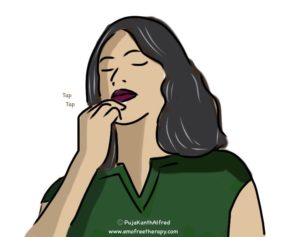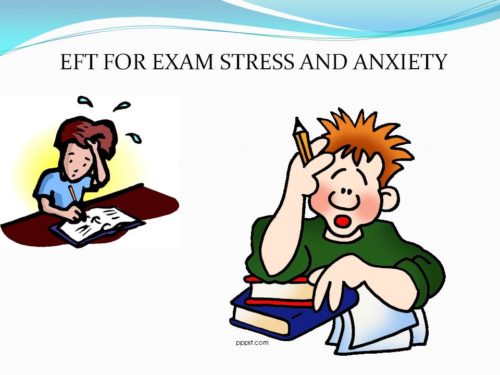
Handling Intrusive Thoughts
Intrusive thoughts are repetitive, anxiety provoking, and frustrating. You feel as if you are losing control – you don’t want these thoughts and yet they suddenly come up and bother you, and the more you try to get rid of them the more they persist.
Let's take a look at why the brain produces thoughts.
The brain produces automatic negative thoughts. This is because the brain is wired for survival. When our ancestors were hunter gatherers, they were always on the lookout for threat. For example, their thoughts were something like this, "Is this a poisonous snake?"," Is that a poisonous fruit? Is it edible?", "I hear a rustle, shall I hide or take out my spear?"
 Even though we're now living mostly in cities and while the chances of being bitten by a snake or eating a poisonous fruit has drastically reduced unless we’re mind numbingly zoned out, our brain is still very active and produces a myriad of thoughts.
Even though we're now living mostly in cities and while the chances of being bitten by a snake or eating a poisonous fruit has drastically reduced unless we’re mind numbingly zoned out, our brain is still very active and produces a myriad of thoughts.
The brain produces ANTS (Automatic Negative Thoughts) and we have a tendency to get hooked on to them. These thoughts are mostly judgements, evaluations and are catastrophic in nature, and not facts. They just get generated endlessly. These thoughts also get blended with visuals and sounds. So, you may have a visual thought of falling down the stairs as soon you start descending the stairs. It may frighten you, but its purpose is to help you stay cautious. However, when you get hooked on to these thoughts by engaging with them, suppressing them or by paying too much attention to them, it can lead to chronic anxiety and hypervigilance.
Here are some tips to handle negative thoughts that are weird, strange, related to self-harming, harming others, gross or sexual in nature and that come out of nowhere.
- Know that these thoughts aren't facts. Tell yourself - these aren't facts.
- Do not react to the thoughts. Most people end up questioning their thoughts or themselves. “How can I have these thoughts? They're weird. Ugh! What's wrong with me?” This line of questioning exacerbates the thought and they become intrusive.
- Reverse the thought in your head, it'll lose its power as Susan David suggests in the book, Emotional Agility. For example, if you're thinking this continually, “What if I harm myself?”, reverse it. Myself-harm-I-if-What. The brain knows the new thought is gibberish and the thought will lose its power.
- Practice calming your mind regularly (Diaphragmatic breathing, tapping, Progressive muscle relaxation etc. can help).
- If you're anxious, then the thoughts will be more in quantity. They could be full blown colorful pictures- that float in your head. Hence, calming your body is equally important as the mind and body aren’t separate. What affects one affects the other. Tapping can help a lot in relaxing and calming your body.
- Usually, there is a theme underlying these thoughts. For example, some thoughts can be catastrophic in nature, like falling down the stairs or more self-harming like, “What if I cut myself with a knife? ”or evaluative - “What if I’m being judged by these people on the street?” Write down your thoughts and explore it with a psychologist. REBT can be very helpful.
- Affirmations can be very helpful too. Repeating or tapping on positive affirmations by Louise Hay, such as the ones given below, can be helpful too.
I calm my thoughts and I am serene. I feel safe to be ME
I lovingly protect myself with thoughts of joy and peace.
My thoughts flow freely and easily. I move through ideas with ease.
I relax and let life flow through me with ease.
Here’s a sample tapping script for intrusive thoughts. Best to make your own script and tap with your own words for tapping to be effective.
 For more information on tapping, click here.
For more information on tapping, click here.
On SOH- Even though I have these thoughts that stress me out, I accept myself.
Sequence of Points – I’m afraid of these thoughts
But these thoughts can’t harm me.
I’m scared of these thoughts.
But they’re just thoughts, not facts.
I choose to be calm and focus on my breathing when they come up.
I choose to trust myself that I won't do anything. These thoughts will not convert into action.
I choose to let these thoughts pass/go by themselves.











